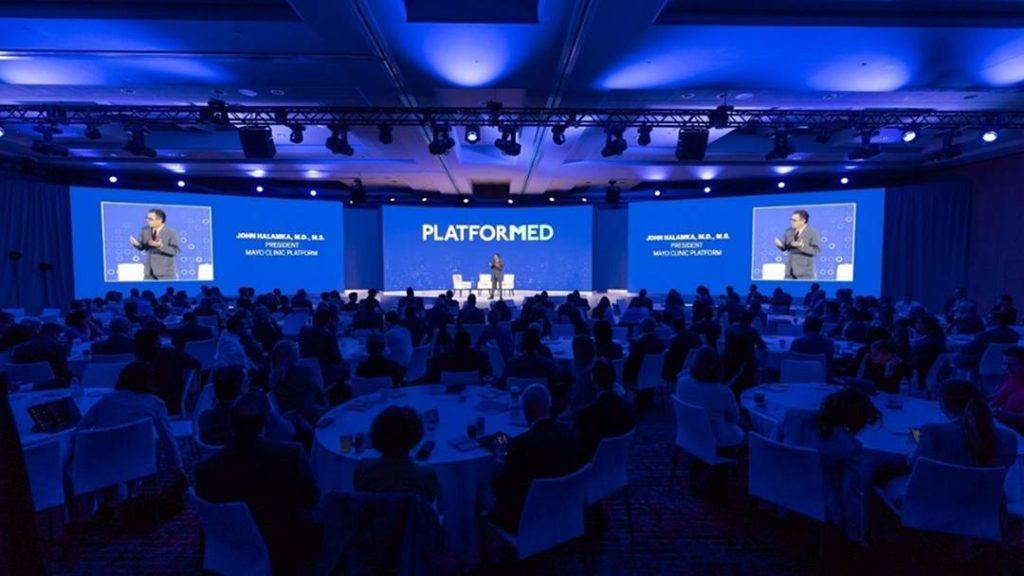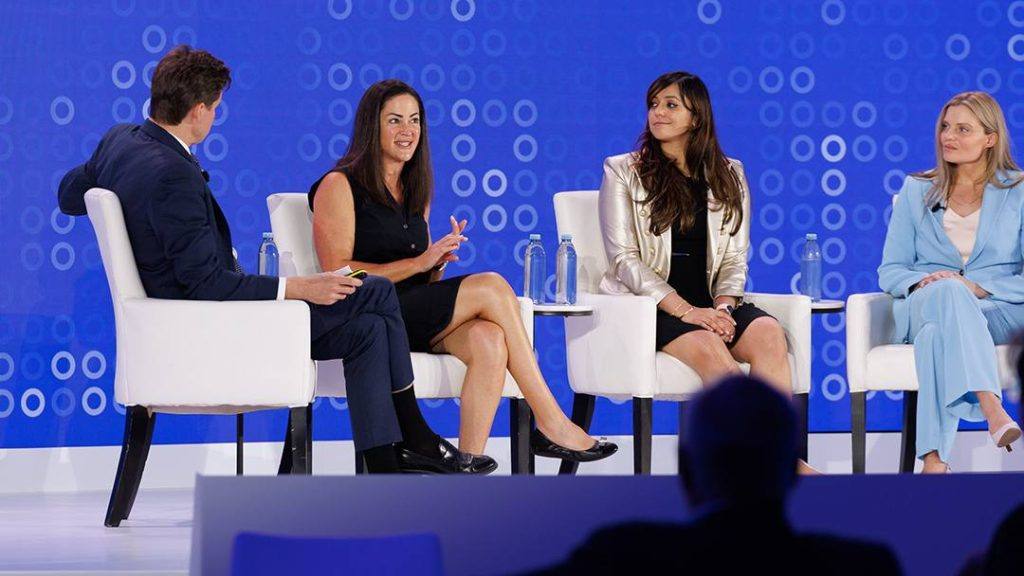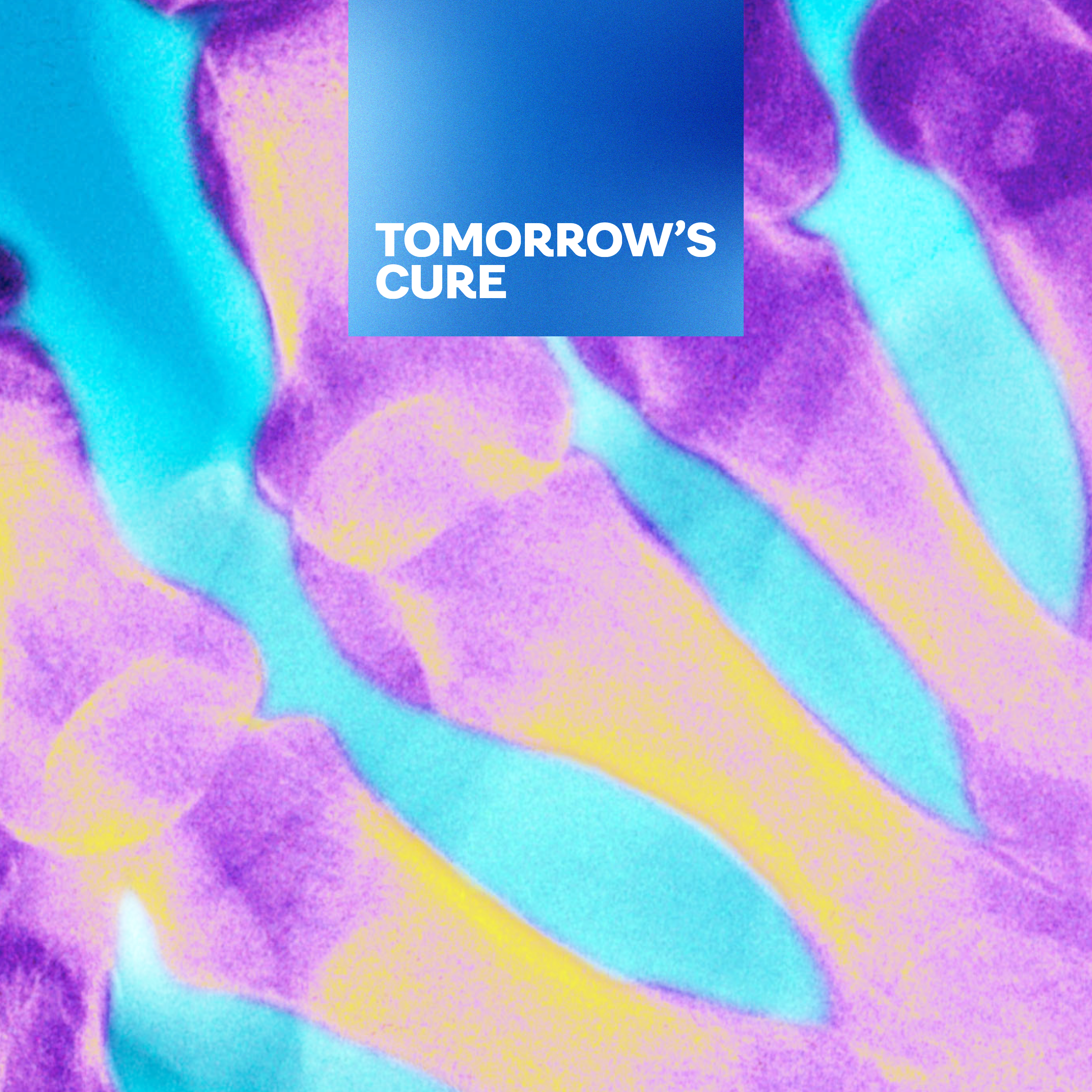-
Medical Innovation
4 takeaways from PlatforMed 2024 to advance collaboration, transformation in healthcare with platform thinking

PlatforMed, the annual conference on platform transformation in healthcare, underscored the importance of a collaborative approach to healthcare innovation to create a world where everyone, everywhere has access to the best possible care.
More than 250 global leaders in technology and healthcare gathered June 4-5 in Phoenix for PlatforMed 2024. Healthcare leaders, industry experts, policymakers, investors, and startups shared new insights and discussed the future of healthcare.
The event opened with a welcome address from John Halamka, M.D., president of Mayo Clinic Platform, followed by a keynote from Gianrico Farrugia, M.D., president and CEO of Mayo Clinic.
"Platforms represent our greatest opportunity to bring real, lasting, and transformative change to our global healthcare system," Dr. Farrugia said. "Through a platform approach to healthcare, we are seeing real, scalable solutions for long-standing and emerging problems."
Headline speakers included Lana Feng, Ph.D., CEO and co-founder of Huma.ai, who shared insights on the revolutionary potential of artificial intelligence in healthcare. Jennifer Goldsack, CEO and founder of Digital Medicine Society, spoke about the promise and power at the intersection of artificial intelligence and healthcare to serve patient needs.
Maneesh Goyal, chief operating officer of Mayo Clinic Platform, focused on how platform-based collaboration is creating a world where the best possible care will be available to everyone, everywhere. Headliner Victoria Lee, M.D., president and CEO of Fraser Health, explored how platforms are helping to transform "sickness care" into "wellness care."
During the Mayo Clinic Platform_Accelerate Showcase, digital health startups shared practical applications of AI-based technologies developed through the accelerator program, including solutions that support care teams by using millions of de-identified patient records to predict life-threatening complications such as sepsis and preeclampsia.

Key takeaways
The conference focused on opportunities and challenges surrounding platform transformation. Topics discussed include the need for industry collaboration, AI safety and security, and the importance of human connection. Speakers also emphasized how digital tools and AI support staff.
Several themes echoed across the conference sessions:
- Healthcare's most pressing challenges require platform thinking and industry-wide collaboration.
Fundamental challenges in healthcare include too much disease, increasing demand, and uneven quality across communities and countries. The industry needs easier ways to collaborate to create more cures, provide even more support to staff and make quality care more accessible. - Healthcare needs change — and platform thinking.
The World Health Organization estimates that there will be a shortfall of 10 million health workers by 2030. Platform thinking and emerging technologies will support the work that only healthcare workers can do, ensuring that, as demand increases, the quality of care can stay consistent. Healthcare must change, and platforms present the best opportunity to support that change. - Trust is essential for transformation.
Healthcare professionals will only adopt AI-based solutions they can trust. AI solutions need to be mitigated for bias and validated by experts. Validation frameworks, like the ones developed by Mayo Clinic Platform_Validate, provide the evidence to establish the trustworthiness of solutions that can help teams enhance operational efficiency and improve patient care. - Mayo Clinic Platform is the model and conduit for global healthcare transformation.
A platform model of healthcare can and will be one of Mayo Clinic's most transformative and far-reaching contributions to the future of healthcare. Industry partnerships and platform thinking will support staff and bring high-quality, personalized medicine to people everywhere — at Mayo Clinic and beyond.
The conference concluded with closing remarks from Dr. Halamka, who emphasized the importance of human connection and collaboration and encouraged the audience to reflect on the possibilities for the future of care.
"If we can start collectively delivering the care journeys and care-path planning that our patients need and want, reducing the burden on our caregivers and empowering the next generation that is not going to have enough resources, then we are finally going to change the practice of medicine," he said. "The only way to do it is with platform thinking — and the only way to do it is together."
Next year global leaders across the healthcare ecosystem will convene once again for PlatforMed 2025, advancing platforms for a better and fairer model of healthcare for all.







